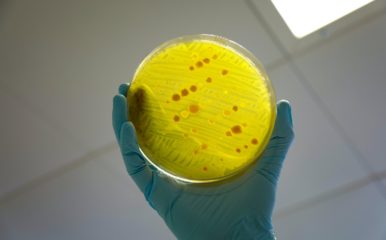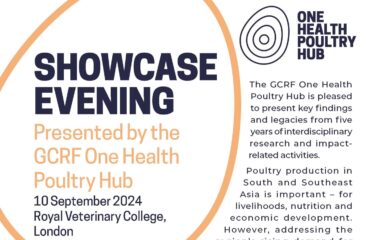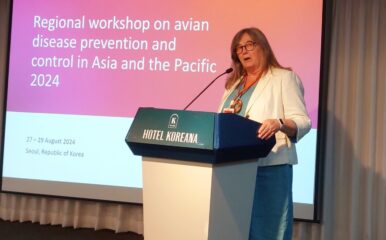
New approach to infectious diseases must recognise livelihoods and diverse voices, say top global health experts
Published on 08/04/2020
Global public health expert Professor David Heymann, who led the UN’s fight against SARS, and other senior scientists have urged countries to ‘go beyond competitive case counting’ in the current COVID-19 pandemic.
Together with colleagues from veterinary and social sciences, he calls for an approach to diseases which spread from animals to humans (‘zoonoses’) which moves away a “single-pathogen focus” and recognises the interconnectivity and interdependence of animal, human and environmental health – the so-called One Health1 approach.
In a Comment piece published today, the group calls for an approach which, among other things:
- embraces a diversity of voices,
- incorporates a dynamic link between scientists and policymakers,
- balances disease control with people’s livelihoods, and
- recognises that national and simplistic solutions are doomed to fail.
Their words come in the same week as Elizabeth Maruma Mrema, acting executive secretary of the UN Convention on Biological Diversity, said countries should ban the ‘wet markets’ popular in China and other parts of Asia that sell live and dead animals and have been blamed for human disease outbreaks such as the current COVID-19 pandemic.
The authors say:
Not only are such demands difficult to implement effectively, but they fail to understand or address the realities of the lives and livelihoods most affected. There may need to be trade-offs.
They speak out against national responses based on high-income settings that are inappropriately translated to poorer settings.
The policies currently promoted across countries are almost impossible to implement in a way that appropriately balances disease control with livelihoods objectives anywhere other than in high-income countries. Their adverse economic and social impacts in low- and middle-income countries can be dramatic and troubling to witness. It has, for example, been heart-breaking to witness the effects of lockdown in India. The potential for more authoritarian regimes to harness lockdowns for political and repressive ends is equally troubling.
As well as Professor Heymann, now of Chatham House and LSHTM, the authors of the Comment include veterinary epidemiologist Professor Dirk Pfeiffer, of City University of Hong Kong and the Royal Veterinary College (RVC); Professor Nitish Debnath, a global expert in One Health of Chattogram Veterinary and Animal Sciences University, Bangladesh; and social anthropologist Dr Hayley MacGregor, of the Institute of Development Studies, UK.
All are involved in the current international response to COVID-19 – and are also partners in the GCRF One Health Poultry Hub, a UK government-funded international research and development programme considering zoonoses, public health and sustainable food production, led by the Royal Veterinary College, UK.
Global risk governance
They state that the current COVID-19 crisis represents an opportunity for instituting new frameworks for global risk governance which go beyond a single-pathogen focus:
An effective body overseeing global risk governance under an active tripartite plus UNEP secretariat2 could help us move beyond the competitive case counting within and between countries we too often see. Fuelled by social and other media, as well as by a multitude of different mathematical, statistical and graphical modelling outputs, one of its effects has been the varying degrees of panic now being witnessed on a global scale.
The bottom line is that insular national and silo-ed discipline-specific efforts will not improve our ability to respond to the emergence or re-emergence of disease, COVID-19 or another. But even more importantly we need to accept as a high priority the urgent need for the global community to effectively work together to prevent and prepare for the emergence of such risks in the first place.
- The full Comment piece can be found at: onehealthpoultry.org/blog-posts/going-beyond-competitive-case-counting/
- For further information, contact Naomi Marks: n.marks@ids.ac.uk
Footnotes
- One Health recognises that human, animal and environmental health are inter-related and so a collaborative and interdisciplinary approach to zoonoses research, policy and management is needed.
- A ‘tripartite’ collaboration between the World Health Organization (WHO), the Food and Agriculture Organization of the UN (FAO) and the World Organisation for Animal Health (OIE) currently exists but a fully integrated approach to zoonotic disease has yet to emerge.
Notes for editors
- The GCRF One Heath Poultry Hub is an interdisciplinary research project addressing the need to meet rising demand for poultry meat and eggs in developing countries, while minimising risk to international public health. The Hub brings teams of laboratory, clinical, veterinary and social scientists together to take a One Health approach to the challenge of providing safe, secure food. It is led by Director Professor Fiona Tomley, of the Royal Veterinary College (RVC). Find out more at www.onehealthpoultry.org
- The GCRF One Health Poultry Hub is funded by UK Research and Innovation (UKRI) through the Global Challenges Research Fund (GCRF), which is a key component in delivering the UK AID strategy and puts UK-led research at the heart of efforts to tackle the UN’s Sustainable Development Goals. Find out more at www.ukri.org/research/global-challenges-research-fund/interdisciplinary-research-hubs-to-address-intractable-challenges-faced-by-developing-countries/


